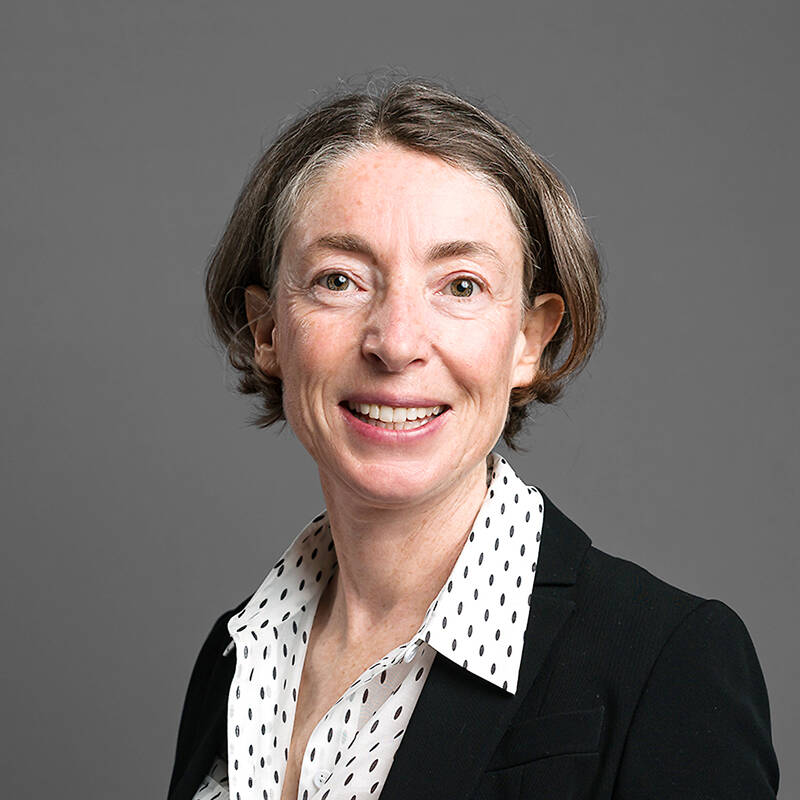Taiwan’s current energy and food situation is unsustainable — and an alarming security issue.
Emma Sky, an expert on conflict and reconciliation and director of Yale University’s International Leadership Center, says that tackling climate change and shoring up Taiwan’s security are two sides of the same coin.
“Taiwan imports 97 percent of its energy, two-thirds of its food — that’s not sustainable, that’s not moving towards net zero,” she says, adding: “what you need to address climate change is the same as what you need to do to become more resilient to withstand the squeeze from China.”
.jpg)
Photo courtesy of Wikimedia Commons
She adds that since COVID and the rise in global tensions, countries are “derisking,” by shrinking supply chains, and focusing on food production at home — changes that Taiwan needs to accelerate.
“Food, energy and water security makes Taiwan more capable of coping with a strangulation of a blockade and those types of scenarios,” she says.
Sky, who spent years advising the US military in Iraq and later fostering Israeli-Palestinian co-existence, will draw on her extensive experience in conflict resolution to discuss the reasons why climate change should form the centerpiece of all government policy.

Photo courtesy of the Lung Yingtai Cultural Foundation
The speech, titled Peace Does Not Come Through Passivity and open to the public, will be held tomorrow evening in Taipei and moderated by Lung Yingtai (龍應台), a former minister of culture and founder of the Lung Yingtai Cultural Foundation.

Exceptions to the rule are sometimes revealing. For a brief few years, there was an emerging ideological split between the Democratic Progressive Party (DPP) and Chinese Nationalist Party (KMT) that appeared to be pushing the DPP in a direction that would be considered more liberal, and the KMT more conservative. In the previous column, “The KMT-DPP’s bureaucrat-led developmental state” (Dec. 11, page 12), we examined how Taiwan’s democratic system developed, and how both the two main parties largely accepted a similar consensus on how Taiwan should be run domestically and did not split along the left-right lines more familiar in

This month the government ordered a one-year block of Xiaohongshu (小紅書) or Rednote, a Chinese social media platform with more than 3 million users in Taiwan. The government pointed to widespread fraud activity on the platform, along with cybersecurity failures. Officials said that they had reached out to the company and asked it to change. However, they received no response. The pro-China parties, the Chinese Nationalist Party (KMT) and Taiwan People’s Party (TPP), immediately swung into action, denouncing the ban as an attack on free speech. This “free speech” claim was then echoed by the People’s Republic of China (PRC),

As I finally slid into the warm embrace of the hot, clifftop pool, it was a serene moment of reflection. The sound of the river reflected off the cave walls, the white of our camping lights reflected off the dark, shimmering surface of the water, and I reflected on how fortunate I was to be here. After all, the beautiful walk through narrow canyons that had brought us here had been inaccessible for five years — and will be again soon. The day had started at the Huisun Forest Area (惠蓀林場), at the end of Nantou County Route 80, north and east

Specialty sandwiches loaded with the contents of an entire charcuterie board, overflowing with sauces, creams and all manner of creative add-ons, is perhaps one of the biggest global food trends of this year. From London to New York, lines form down the block for mortadella, burrata, pistachio and more stuffed between slices of fresh sourdough, rye or focaccia. To try the trend in Taipei, Munchies Mafia is for sure the spot — could this be the best sandwich in town? Carlos from Spain and Sergio from Mexico opened this spot just seven months ago. The two met working in the